Learn how to store lemons for an entire year with this fermented lemon recipe. You can use the lemons just like fresh lemons and the taste is incredible!
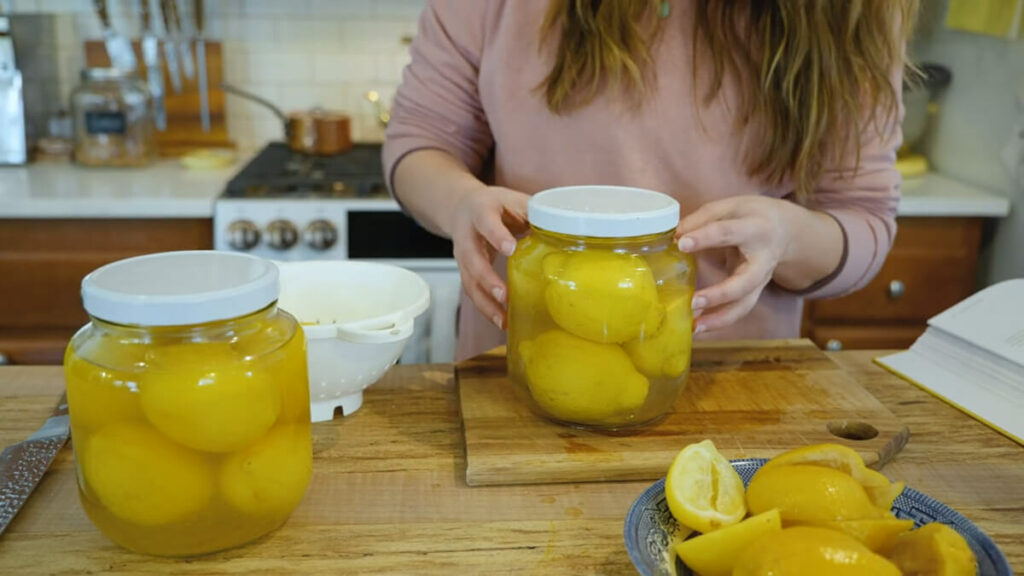
Why I Love This Recipe
When it’s citrus season, I eat as much as I can get, like delicious candied kumquats!
Especially here in the Pacific Northwest where citrus season happens to fall during the coldest, wettest season of all. That bright citrus flavor is incredible, but I also want to be able to enjoy it year-round.
Sure, I can buy citrus at my local grocery store 12 months out of the year, but it won’t always be as affordable as when the citrus is fresh and in season (as is the case with most produce).
Lemons are one of the lesser-known varieties of crops that can be stored well into the winter months. So, I preserve them to use fresh throughout the year!
The video in the blog posts shows fresh lemons that I fermented in March 2022. At the time of this posting, it is now February 2023 and I’m showing you what those fermented lemons look like.
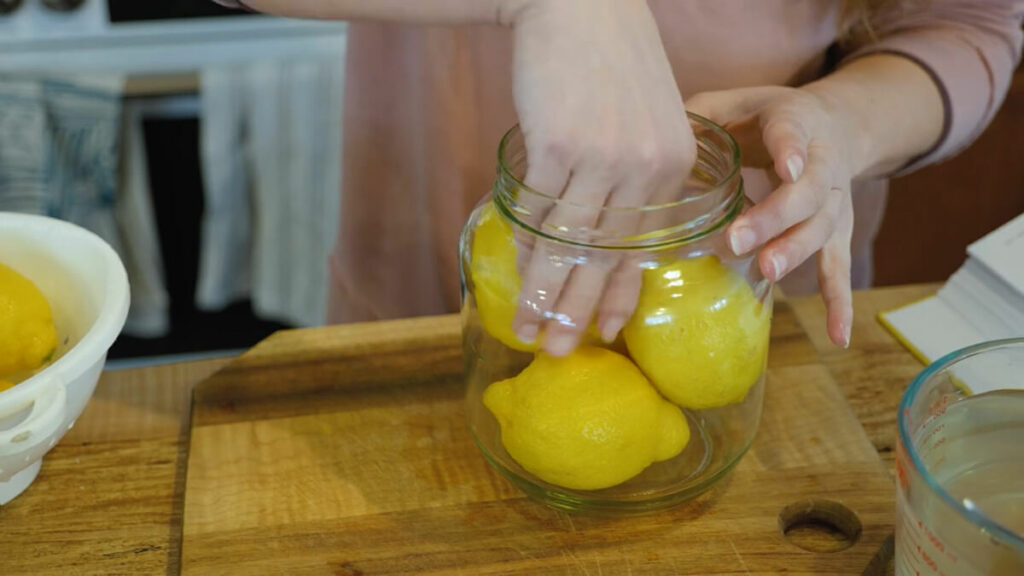
How to Store Lemons
- Store at room temperature to last a couple of weeks.
- Store them in cold storage or in the crisper of your refrigerator to last a couple of months.
- Store them in water for any of these methods to prolong their shelf-life.
- Wrap up cut lemons and store them in the refrigerator to keep them fresh for 5-7 days. This also helps keep the pulp and juices from drying out.
- Don’t store whole lemons in plastic.
- Keep them away from other fruit to prevent ripening too quickly.
- If lemons are about to go bad, juice them and freeze the juice for later.
- You can freeze and store lemons for 3-4 months. Frozen lemons can be defrosted at room temperature and juiced. The pulp will be mushy, but the juice will be fine.
- Freeze-dry or ferment lemons for long-term preservation.
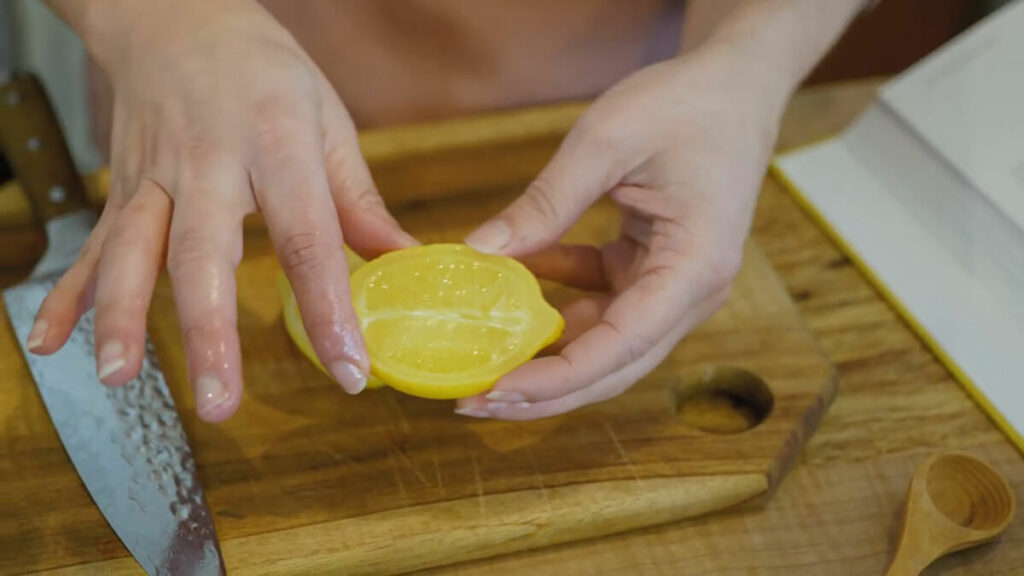
You may wonder, “Do lemons last longer in the fridge or on the counter?” Or “Should lemons be refrigerated?” This depends on how fresh the lemons were at the time of purchase and how long you want them to stay fresh. However, lemons will last longer when stored in the refrigerator.
If you’ll be using your lemons within a week or two of purchasing them, they will be fine stored at room temperature.
So, how long can you keep lemons in the fridge? Again, this depends on how fresh they were when you purchased them. Also how long they sat on the counter before being transferred to the refrigerator. Generally speaking, lemons kept in cold storage or a refrigerator (submerged in water) should last up to a few months (or more).
The answer to the question, “What is the best way to store lemons and limes?” will vary by person. If you want to store fresh lemons for up to a year, then the refrigerator or room temperature are not the best option.
For long-term storage, fermenting, freezing or freeze-drying them is the next best option. Because I want to quickly be able to grab and use fresh lemon for the juice, fermenting is the best choice for me.
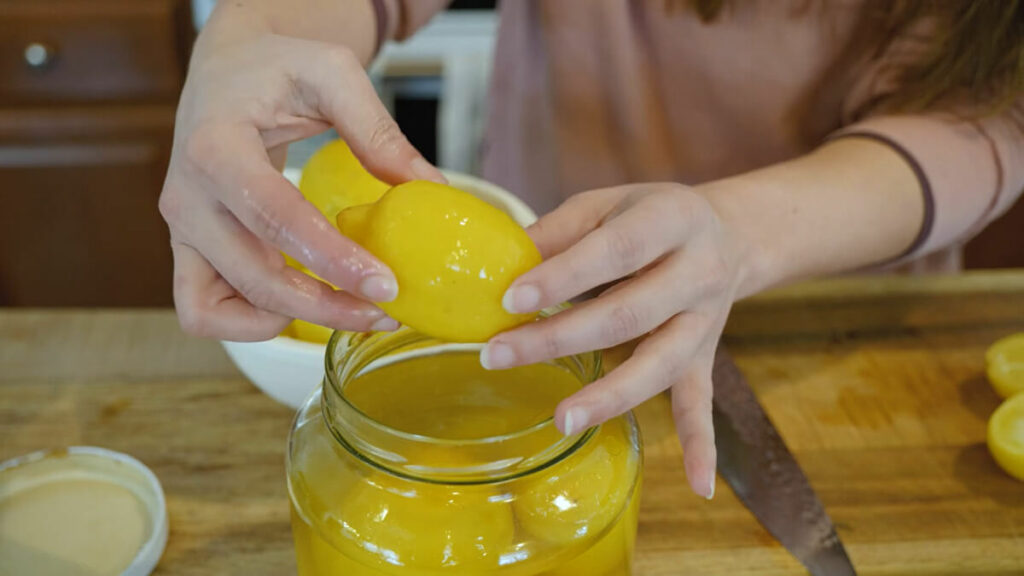
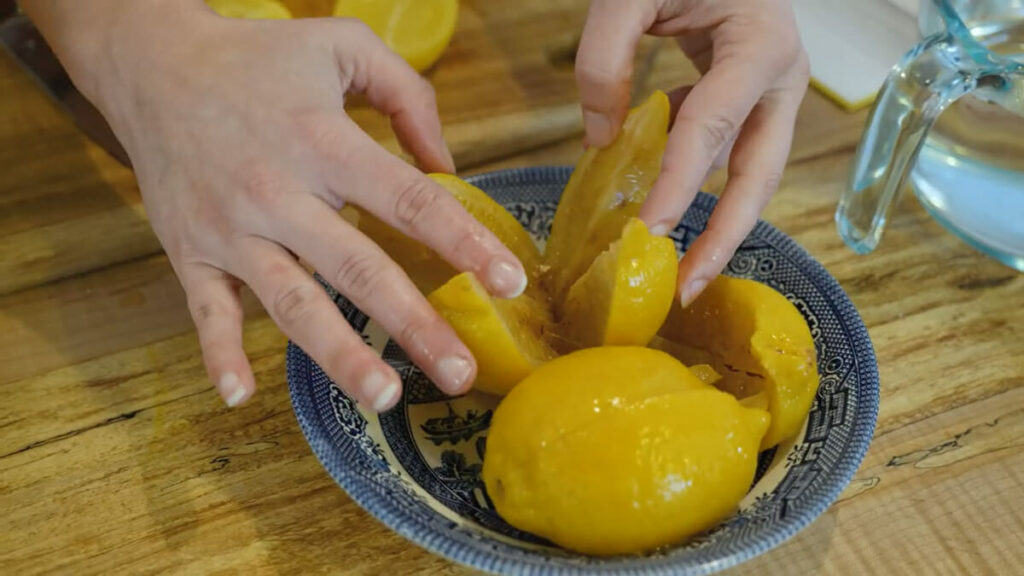
Fermented Lemons (Two Ways)
When fermenting lemons there are two ways to do it. Quartered and salted, or whole.
Salted Fermented Lemons (Great for Savory Recipes)
First, you can quarter the lemons, add salt over the flesh of the lemon, and then ferment them in a 3% saltwater brine.
Salted fermented lemons are fantastic for use in savory dishes. You may need to adjust the salt in the recipe as the lemon juice is fairly salty.
For those of you who have my preserving book, the recipe for these salted fermented lemons is on page 333 of Everything Worth Preserving.
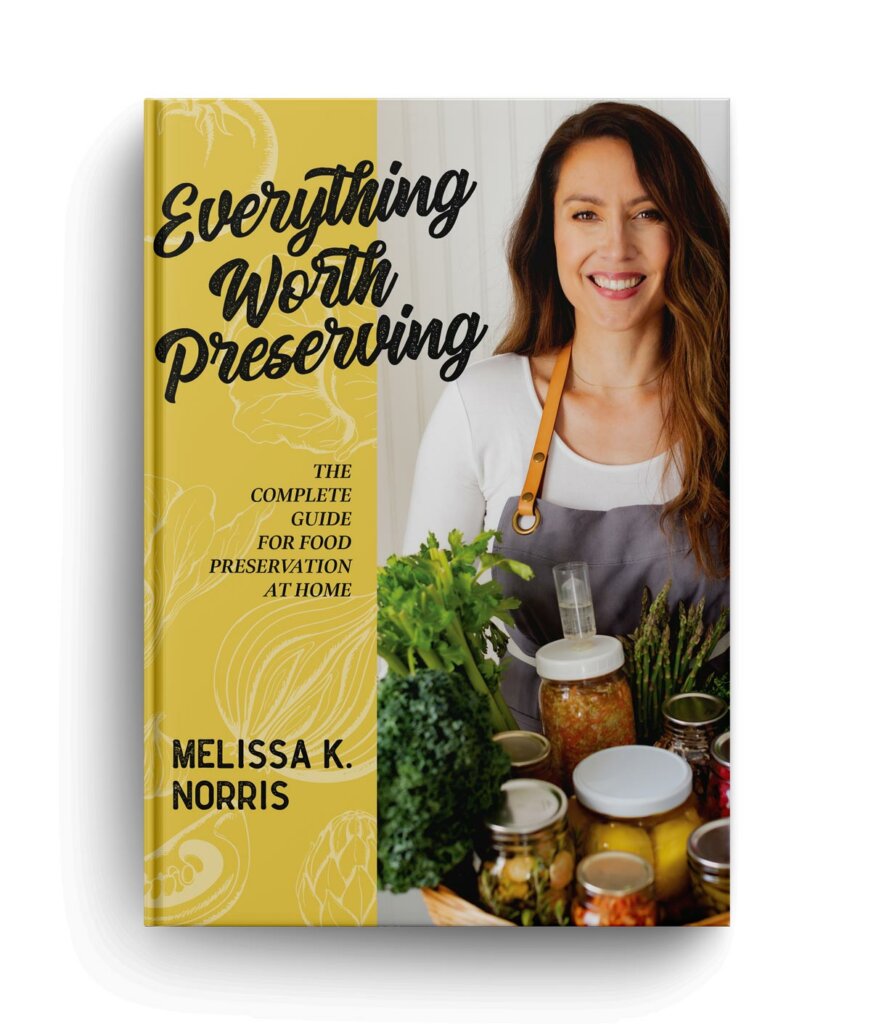
available now
Everything Worth Preserving
Take control of your food with Everything Worth Preserving by Melissa K. Norris! This ultimate guide to canning, fermenting, and more gives you the confidence to preserve food safely and sustainably. Don’t let your harvest go to waste—grab your copy today!
Fermented Whole Lemons (Great for Fresh Eating & Sweet Recipes)
Second, I wanted to see if I could ferment whole lemons so they were less salty and good for fresh eating or use in baking and sweeter recipes, and in homemade mayonnaise. I’m happy to say it worked beautifully!
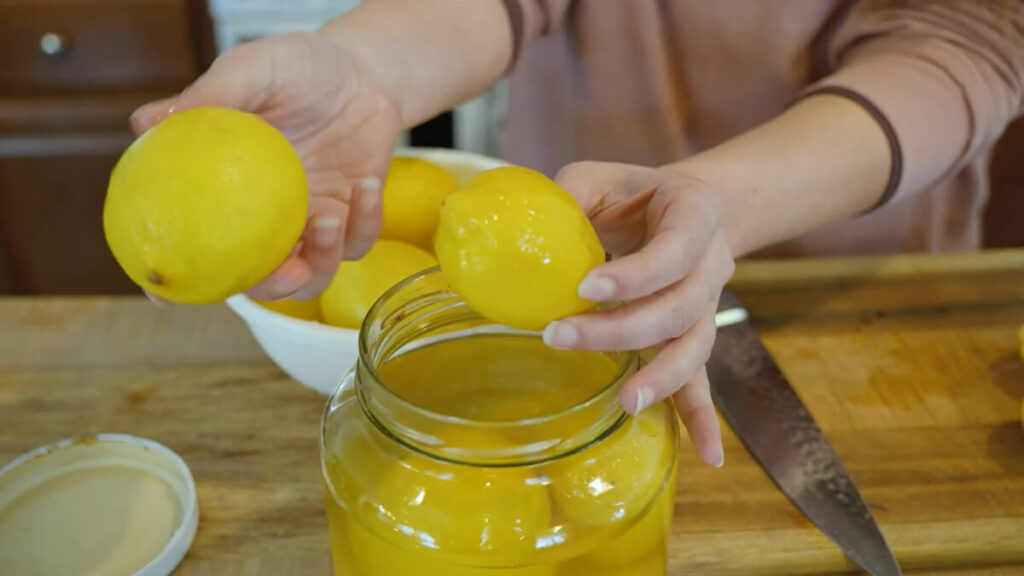
How to Ferment Whole Lemons
The whole fermented lemons give me greater versatility when using them. So that’s the recipe I’ll be sharing today.
Supplies Needed
This recipe is very basic and only requires you to have a large enough vessel (or vessels) to store the number of lemons you’d like to preserve
- Large Vessel with Lid – You can use a crock, a gallon jar, a half-gallon Mason jar, etc. I love getting organic coconut oil from Azure Standard, which comes in glass jars with a screw-on lid. I save those jars throughout the year because they make fantastic fermentation vessels, perfect for these fermented lemons.
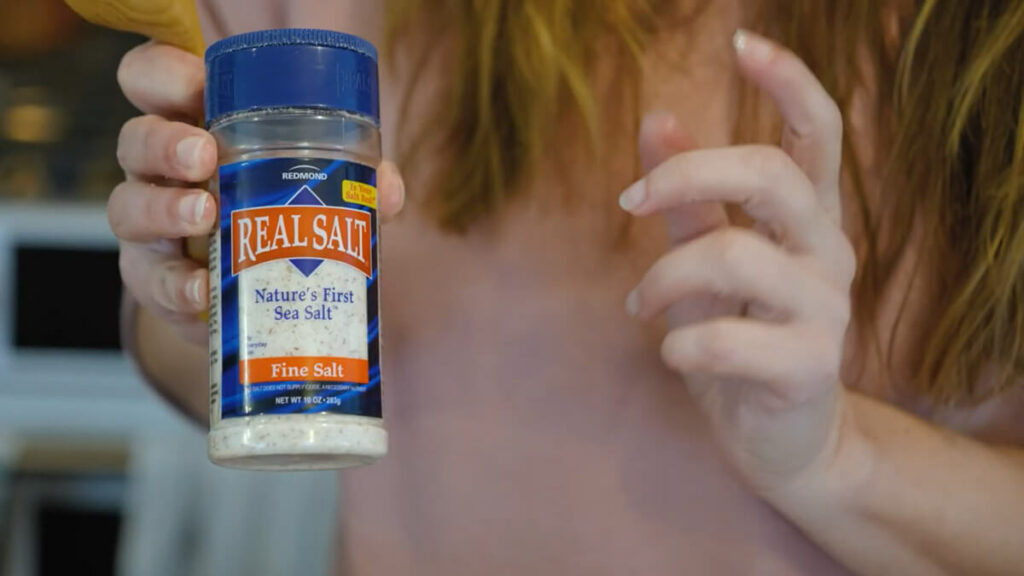
Ingredients Needed
There are only two ingredients you need for this recipe! Did I mention it was simple?
- Lemons – Whole organic lemons are best, but non-organic will work well, too. Wash them in warm soapy water to remove as much of the protective wax layer as possible. Then be sure to also rinse them very well after washing.
- Saltwater Brine – For this recipe, we’re working with a 3% saltwater brine. I use 1 Tablespoon salt for every 2 cups. That also equates to 30 grams of salt per liter of water (or 1 ounce of salt per quart of water) for a 3% solution. I use Redmond Real Salt for everything! (You can get 15% off your order by using code “Pioneering” at checkout.) It’s just a great all-around salt mined and made here in the US and contains all the healthful minerals. I use it for cooking, fermenting, for our animals, etc. You can use any mineral salt provided it doesn’t have iodine or anti-caking agents.

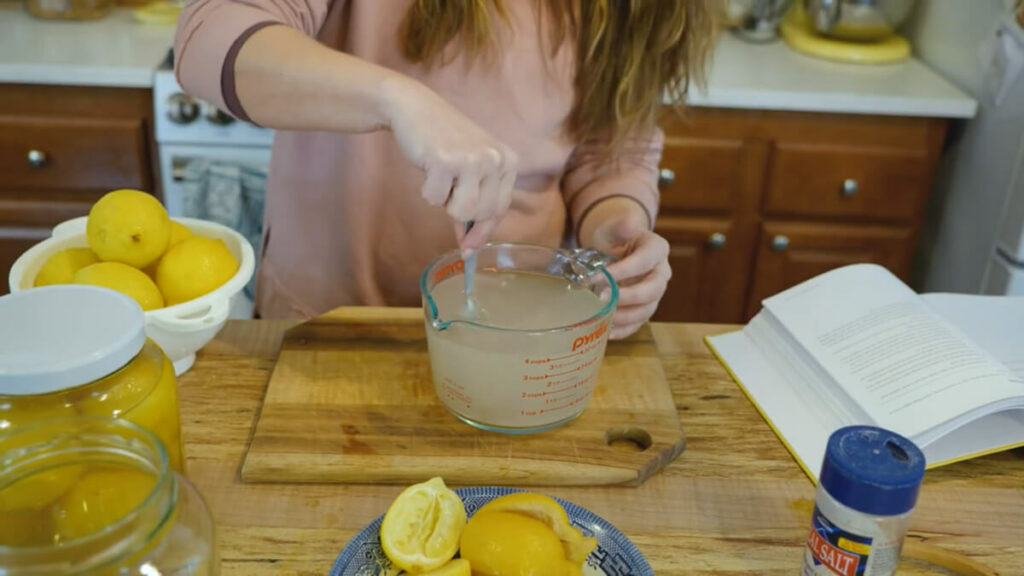
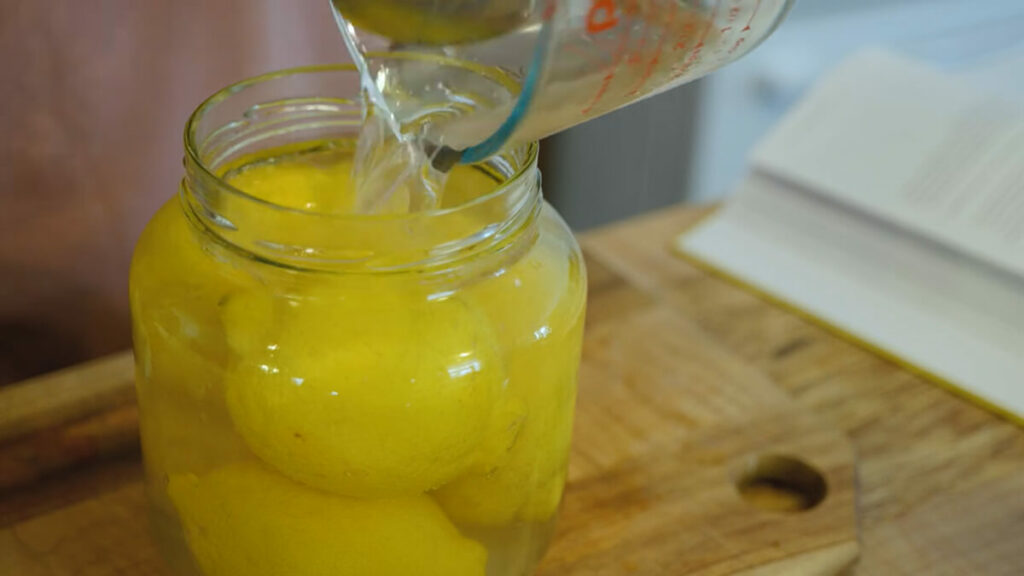
Step-By-Step Directions
- Gather all your supplies.
- Wash and thoroughly rinse all lemons.
- Create a saltwater brine by following the ratios above. The amount of liquid needed to fully submerge the lemons in your jar will vary. This depends on the size of your jar and the number of lemons you’re fermenting.
- Fill jar with lemons. Really squeeze them in. The tighter they are packed, the less likely they will rise above the surface of the brine.
- Add a weight, if needed, to keep lemons submerged below the brine.
- Let ferment at room temperature for 3 days.
- Transfer to a cool location (or cold storage) and use as needed. Pro Tip: Use a clean utensil every time you need to get a lemon out of the brine. This helps to avoid introducing bacteria to the jar.
Did you make this recipe? If so, please leave a star rating in the recipe card below. Then snap a photo of your fermented lemons (or limes) and tag me on social media @melissaknorris so I can see!
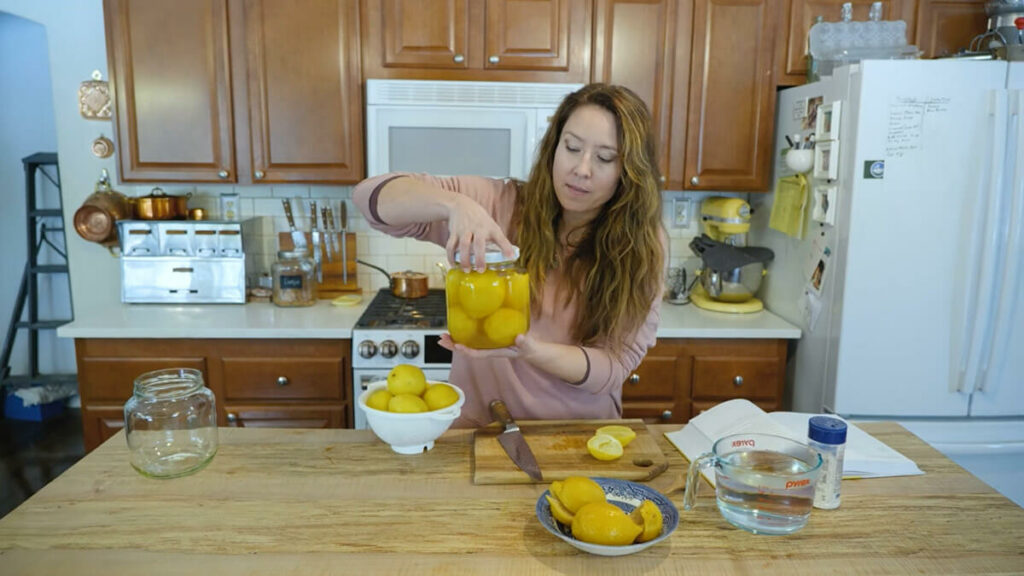
More Posts You May Enjoy
- Fermented Salsa Recipe
- Fermented Pickles Recipe
- Fermented Cranberry Sauce
- Kahm Yeast (What, Why & Does it Ruin a Ferment)
- Fermentation for Health Benefits
- Homemade Buttermilk Ranch Dressing (Probiotic)
- Ultimate Guide to Fermenting Vegetables
- Fermented Dairy – Why You Should Be Doing This Now
- How to Make Yogurt at Home
- 8 Tips for Strengthening Your Immune System Now
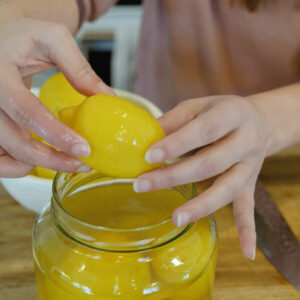
Fermented Lemons (How to Store Lemons for a Year)
Equipment
- Glass jar with lid
Ingredients
- 12 whole lemons
- 4 Tablespoons salt I recommend Redmond Real Salt
Instructions
- Wash and thoroughly rinse all lemons.
- Create a saltwater brine by following the ratios in the notes section below. The amount of liquid needed to fully submerge the lemons in your jar will vary. This depends on the size of your jar and the number of lemons you're fermenting.
- Fill jar with lemons. Really squeeze them in. The tighter they are packed, the less likely they will rise above the surface of the brine.
- Add a weight, if needed, to keep lemons submerged below the brine.
- Let ferment at room temperature for 3 days.
- Transfer to a cool location (or cold storage) and use as needed. Pro Tip: Use a clean utensil every time you need to get a lemon out of the brine. This helps to avoid introducing bacteria to the jar.
Notes
- Saltwater Brine: For this recipe, we’re working with a 3% saltwater brine.
- I use 1 Tablespoon salt for every 2 cups of water.
- That also equates to 30 grams of salt per liter of water (or 1 ounce of salt per quart of water) for a 3% solution.
- I use Redmond Real Salt for everything! (You can get 15% off your order by using code “Pioneering” at checkout.)
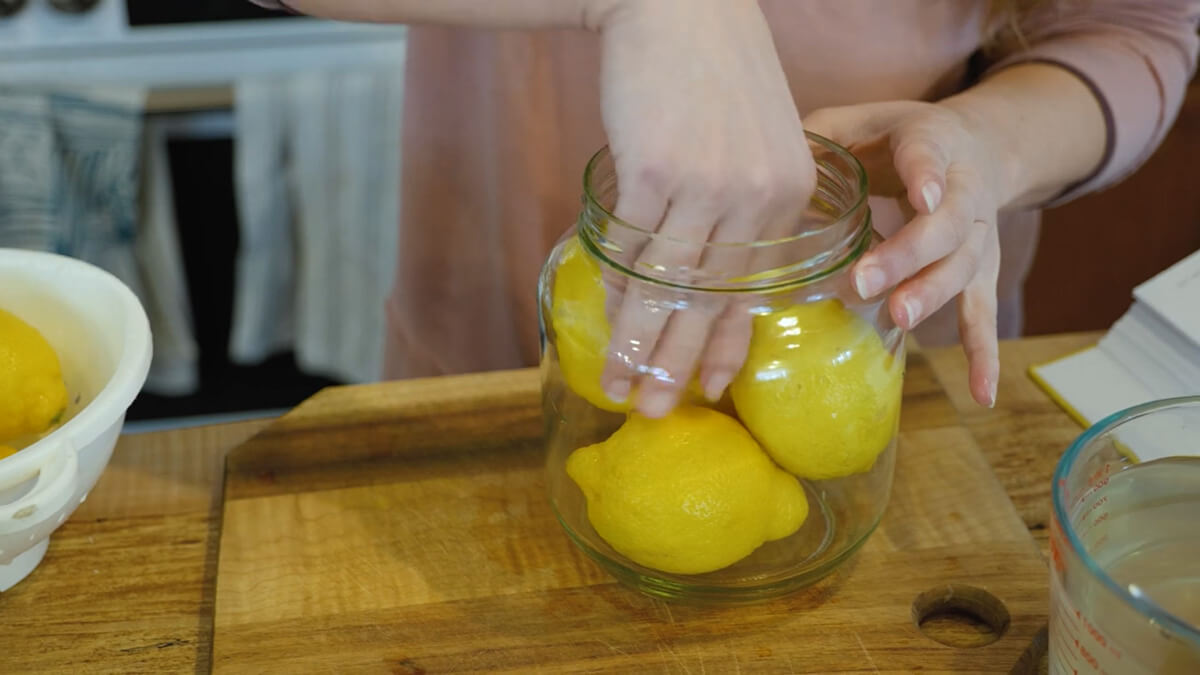

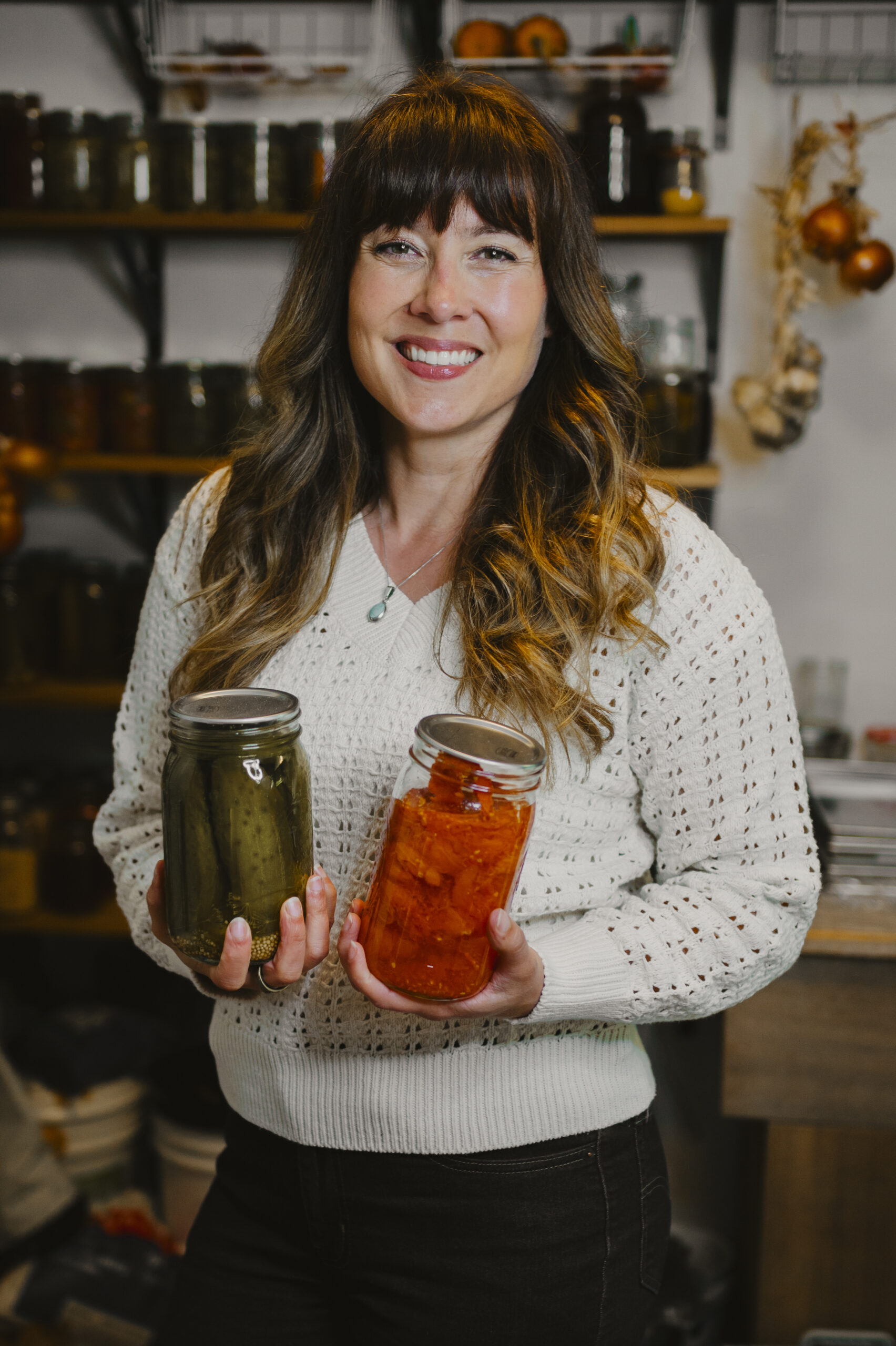
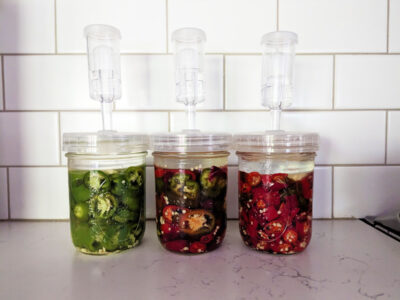
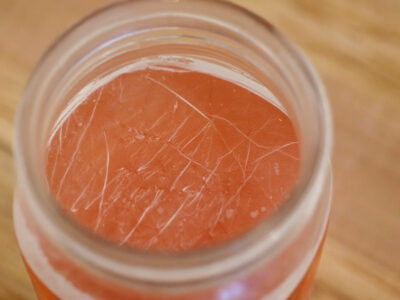
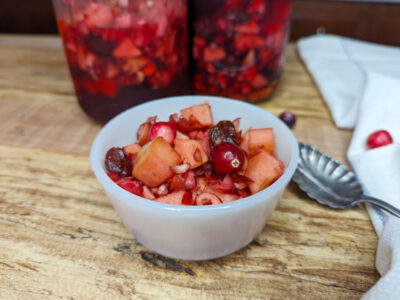
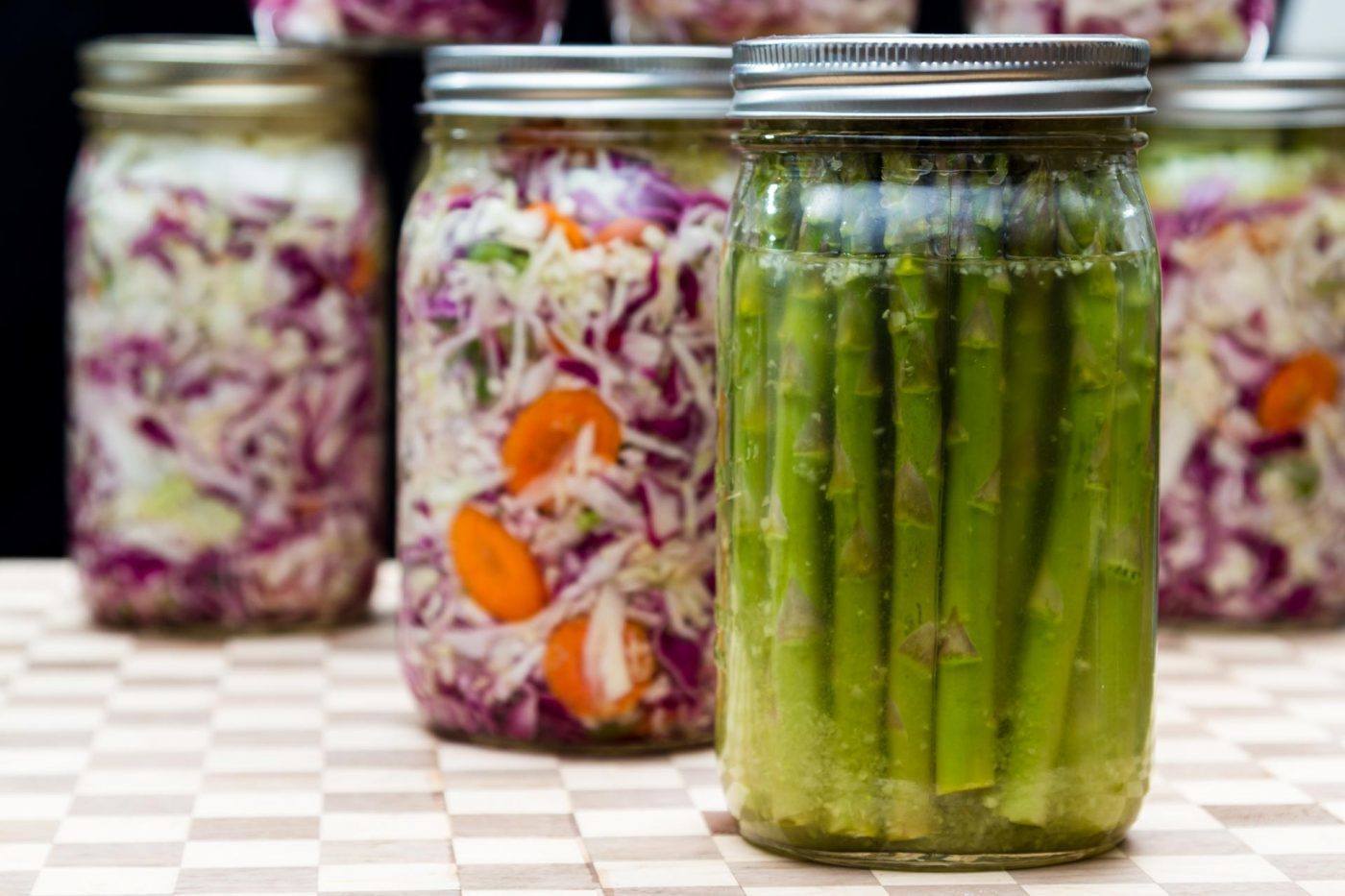
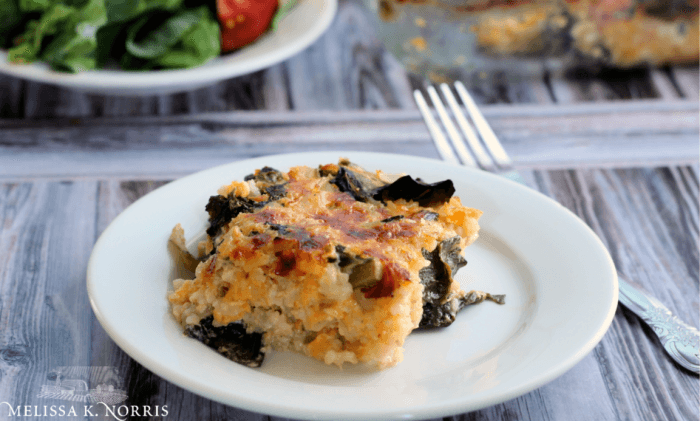
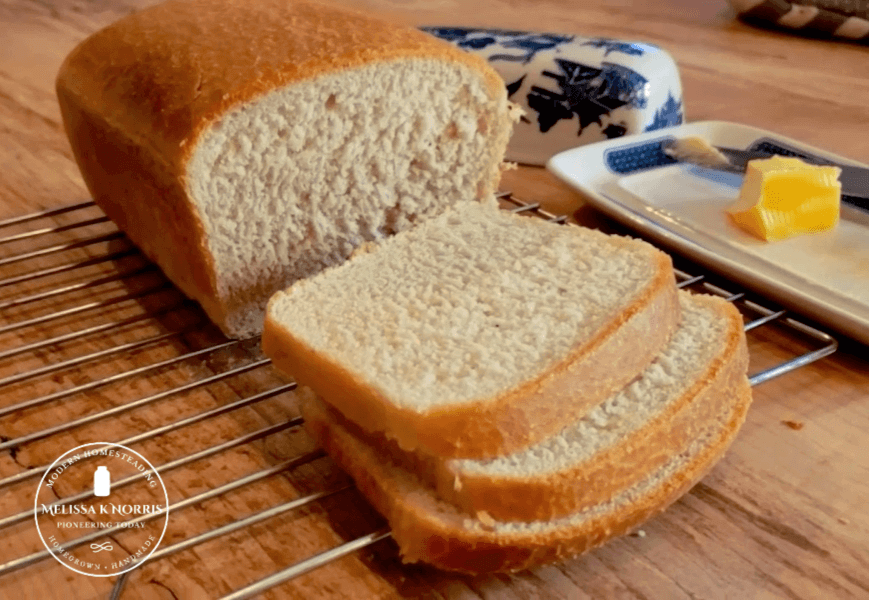
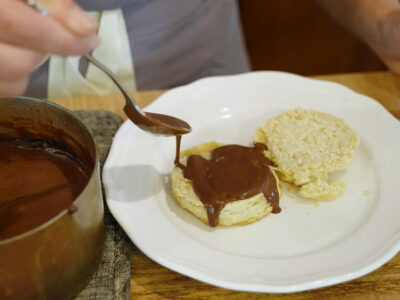
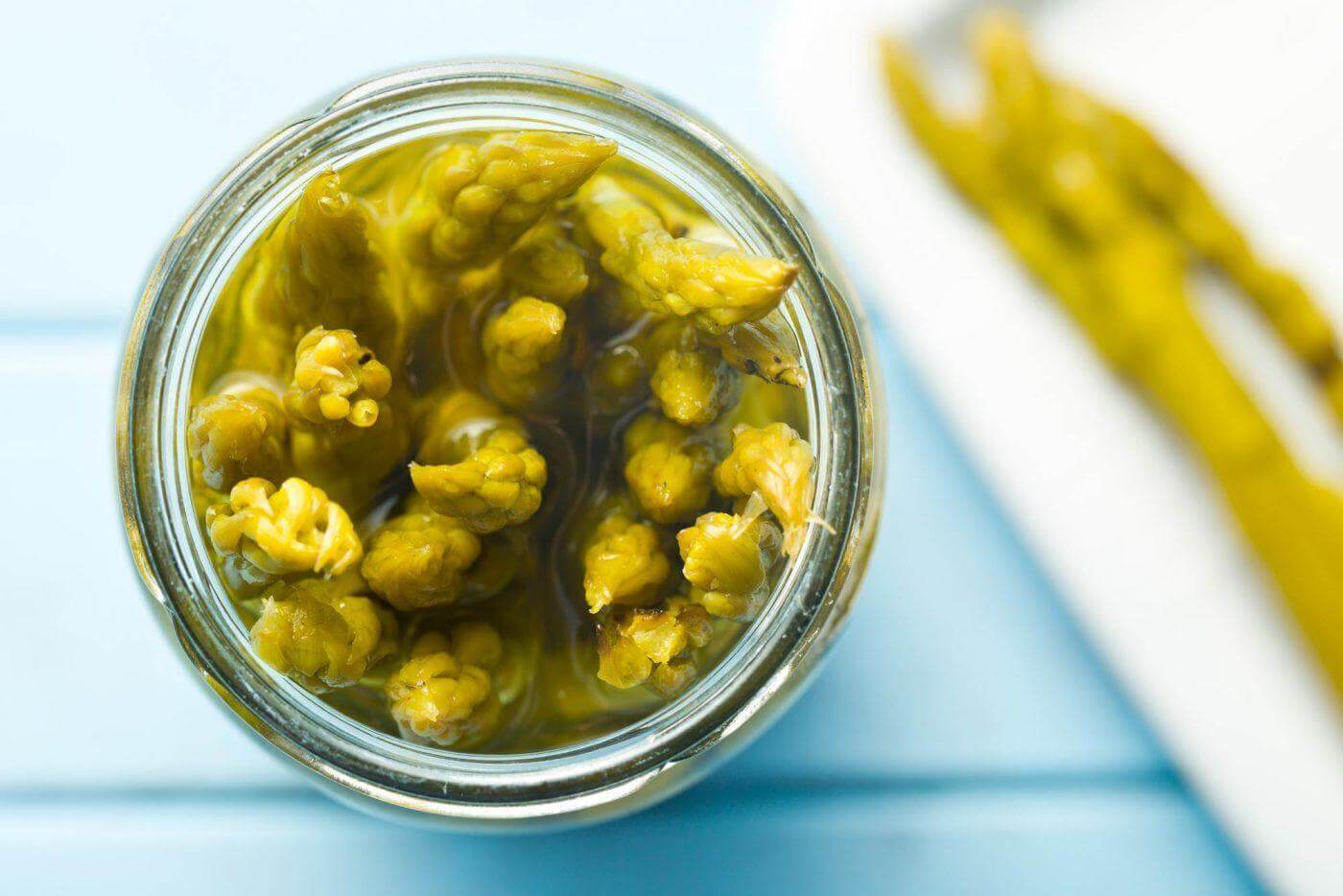

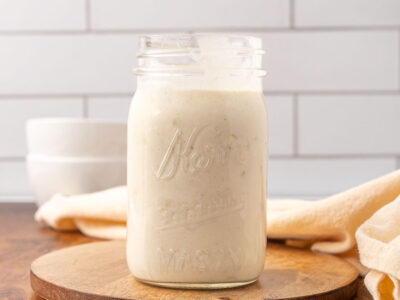
Several people have asked if one can ZEST the lemons and how will it taste (extra salty, etc..) – I have not noticed that anybody has answered yet. Has no-one tried to zest these?
I mention in the video you can absolutely zest these, just rinse them if you don’t want a salty zest.
Been loving them lemons so far, and just did up a couple batches of limes!
Has anyone tried this with oranges for fresh eating/snacking? Like navel, blood orange, mandarins, etc.
I did whole uncut lemons because I love eating sliced lemons with salt all year around and getting decent lemons where I live is not easy!
The problem is that the lemons are REALLY BITTER! Not sour but they taste like the white pith instead of lemon and sour (juice included).
No clue why, but definitely disappointed. No lemon flavor at all, just the bitter.
That sounds like an issue with the lemons not the method. I have not experienced this.
I have a large jar but no lid. Does it need to be completely sealed? Any other suggestions for a lid?
You could use plastic wrap if you don’t have a lid, but it does need to be sealed
I like this new recipe as I tried the Salted Lemons a few years ago and they turned out horrible, mushy and tasted too salty. I am going to get some lemons and try this new way. Thanks Melissa!
Wonderful information. TY. Question – Can you use the zest of the lemon for baking, etc?
Yes just rinse them first.
Can I hot water bath this recipe to keep for storage since I don’t have a large refrigerated area for my food storage.
I would like to know the answer to this question also.
No, you cannot can whole lemons.
Thank you for all your posts! I did lemons about a month ago and am just about to do limes. Looking at the recipe to do the limes I realized I didn’t let the lemons sit at room temperature for 3 days. Ugh. Will that affect them? Is there anything I should do? Will the lemons still be good?
They should be fine, room temperatures helps to jump-start the fermentation process as cold slows it down.
Can you zest and use the lemon/lime?
If I preserve them in the water whole as you did; you mentioned they’ll work great for baking but will it be too salty if I try and make lemonade out of it aswell?
Thank you
That definitely depends on your palate but worth a try.
If I only need half of a lemon can you place other half back into brine? Or would this be considered cross contamination?
I just filled a gallon jar with lemons and the brine. I’m looking forward to this. Thank you!
Where did you purchase your glass jars with plastic lids?
Hi! I just made these today! I have a tiny air bubble where one lemon is pressed up against the side of the fermenting jar. Will this ruin the whole batch? And as I use lemons, if the brine falls below the level of the lemons (and the lemons are sticking out), do I need to add more brine? Thank you!
No it’s fine but if brine level falls below you’ll need to add more
Hey Donna! One air bubble is not a concern, although you can use a clean chopstick to pop the bubble. Always keep the brine an inch or so above the lemons. I keep extra brine in the fridge and add to it if I need to.
Every lemon I removed from brine I would add more water (and a pinch of salt) to keep the lemons submerged. I kept this on my countertop for 4 months and used every lemon. It’s a great way to preserve lemons without salting them.
Hello!
Would this work on limes and naval oranges? And, when you say a cool location, would a basement work as long as I keep it from sunlight? Thanks!
As long as the basement stays under or at 55 degrees F it will be fine. If it’s warmer, they won’t store as long.
That’s great! Thank you!
Can I use this for limes and oranges as well? Also, can the zest be used for baking as that is what is used normally in baking (was not sure if the brine would affect the taste)? Thanks!
Once you open the jar of fermented Lemons, how long would they last after and would you have to refrigerate once opening? Definitely going to try!
They stay in the fridge the whole time, I just open, grab out what I need, and then put the lid back on.
Hi Melissa!
I just put up some lemons to ferment as per your instructions and I’m looking forward to seeing how they turn out. ? I was really impressed with this method of preserving lemons.
Have you ever tried to preserve limes in the same way? I’d like to try it, but haven’t found anyone on line yet who has done it….?
Elle
Glad you like it, yes you can do limes this way too
Awesome, I was just going to as the same question.
Could this work on navel oranges?
Could this work on naval oranges???
In your recipe you miss a step. The brine is made ,the lemons are in the jar (then you pour in the brine).
Besides citrus fruits does work with any other fruit?
Interesting
So good to know! Does this work with any citrus?
Tried. Looking for great results. Every thing I have tried of yours has been spot on. Thank you Melissa.
most of my recipes that use fresh lemons also call for the zest. how much will the zest “salt up” the brine OR can the lemons be zested prior to the fermentation process (not cutting thru the pith)?
Can you add lemons as you remove them or do you need to finish jar and start over?
It’s best to finish the jar and start over, adding new ones increases the level of possible contamination
Are the lemons whole or cut?
.Re-read towards the top –
Salted Fermented Lemons (Great for Savory Recipes) cut in quarters
+ Fermented Whole Lemons (Great for Fresh Eating & Sweet Recipes)
i reread the instructions, but it still does not answer if the 3% brine (for sweetness storage) will affect the zest’s saltiness
i reread the instructions for “sweetness” yet it did not answer my question – will the 3% brine make the zest salty?
Are we to use a coffee filter over the top for the first three days of fermenting and the screw a lid on, or just a lid from the beginning?
Thanks and Blessings!
A lid from the beginning is fine, just don’t screw it down tight until it hits the fridge.
Could limes be fermented in the same way? Guessing so!?!
I would believe that lemons would be done the exact same way
Melissa – You state you use something to weight down the lemons with. Would you mind telling me what you use?
I use glass fermenting weights with fermenting but with the lemons in this jar they stay beneath the brine without a weight. These are the ones I use https://amzn.to/3IlqkQp
I found some thick glass weights on Amazon that perfectly fit in the top of a Mason jar.